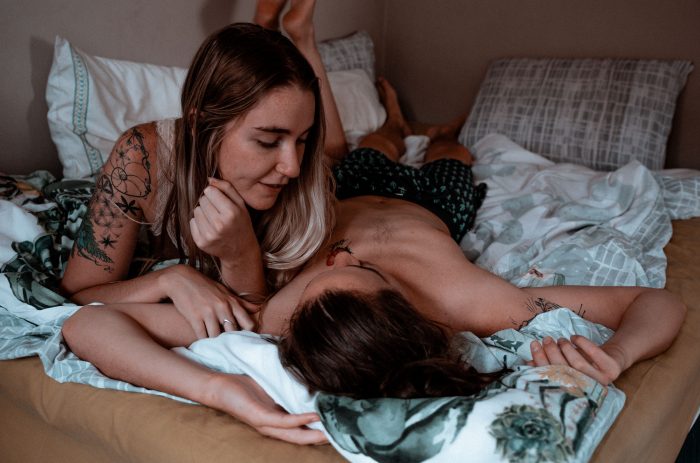For better—but often worse—life in quarantine has forced relationships into new dynamics.
Romanticism is less practiced than its many alternatives, and instead of having the life we “deserve,” most of us will have the lives we are willing to put up with.
Just how much are we willing to put up with?
Our answers to this question will be different for each of us. But under lockdown, we all seem to become more volatile in this bizarre suspension of time and space.
Energy is meant to be moved. We are not meant to be stagnant.
My own experiences over the past few years pushed me into a state of isolation long before any shelter-in-place or quarantine measures were announced.
I fought aggressively at first with the same people I love and hold dear, for over a year, and then things changed.
I’m ashamed to say that none of this happened naturally, and that my higher self wasn’t someone I chose often. I’ve always lacked patience, and I became increasingly short-tempered and defensive—a default state of anyone hurting and unprotected. Hurt people need love more than lovers do.
I softened my edges the hard way and if I were to do it again, I would preface all of my actions with—is it worth it?
It’s easy to be angry. It’s harder to be kind. Kindness and love are worth it.
But even for me—who has always believed in love—choosing it has not always been easy. I realized I liked the idea of it, more than I committed to living it.
This seems true for most of us.
Those of us who grew up with fickle manifestations of love, end up fickle. It took me over a year of violent fights to start behaving differently. When I felt like hitting back, I hugged instead. It’s counterintuitive, but it saves the relationships we hold dear to us.
We can do the same with our words.
Now, as more and more people are breaking and breaking apart, I feel strangely ahead of the curve—but also late in many ways. I wish I’d hugged back sooner. Hitting back at those we love is destructive. But seeming like the easier choice in the moment, it becomes a shared reality for many.
Oftentimes, especially in times of crisis, our behaviors betray our best intentions. We become addicted to our pain.
When we cannot take ownership of our own baggage, this cuts our capacity to love—family, chosen family, friends, and most important of all, ourselves.
Our relationships change as we change. And when we change, our worlds start to look different. One way to be more mindful is to think of our behavior as a confirmation of our beliefs and commitments.
We should take time to exhale, and make space to check in with ourselves—is what we are about to do worth it?
Life under quarantine forces us into a kind of stasis, and unless we remind ourselves why we choose to be together, it can seem almost inevitable that we will drive others away. No one is made to shoulder all that we refuse to deal with.
The uncertainties that come from this pandemic have created a sense of helplessness among many of us. We want to save relationships, but we self-destruct. We want to hold onto relationships, but our bad behavior takes over. The rooms we are in cannot hold both anger and love, so one takes over, and it’s usually not the one that serves us. I know, because I’ve experienced it—but I’m in a different place now.
Emotions and logic don’t run on the same tracks. Helplessness is an outer, shallow layer. As long as we cling onto the feeling of helplessness, we’ll only be able to see our “problems” at this outermost, surface layer. We need to dive deeper. We need to remind ourselves of our motivations and intentions. We need to trace to our roots. Because the roots of our emotions, the roots of our being, look different than the surface symptoms.
Our lives are a collective vision of our choices, guided by awareness, and a commitment to our beliefs. Love is a hard choice. It’s one of the reasons why so many of us have, at one point or another, locked our hearts.
Energy requires movement. When the most powerful part of us—our heart—is locked down, whatever flows through us cannot sustain the lives we want to have.
If we want to have love, it cannot simply be an idea. Instead of looking at love as a noun, as something to be acquired or received, treat it as a verb.
Anyone getting in or out of relationships will have a million questions running through their heads.
Is he the one?
Does it feel right?
Will my friends get along with her?
Will she ever get me?
Will he make time for ___?
None of these matter unless we answer our anchoring question first: is it worth it?
When I listen to my friends introduce their new partners, I often know more about what they do than who they are. In these cases, little time would pass before the relationships would suffer in troubled waters.
What we do, are surface things. Who we are, that’s the most important part. That’s the part that will ultimately determine our answers to whether this relationship is worthwhile.
Particularly for those wanting to save relationships, one key question to ask before any act of destruction is: whether what we’re about to do, is worth it.
Is it worth it to broadcast our pain once more?
Is it worth it to one-up the person we claim to love?
Is it worth it to up-end what we’ve built so far?
Is it worth it to win, by default, making the person we love, lose?
Is it worth it to let our anger out as it chips away at the hearts of whom we are meant to protect?
Is it worth it to curb our anger, as a way to carve out more space for love?
Our relationships won’t change until we change who we are within them.
We become two completely different people depending on how we feel: when we feel it’s worthwhile to hold onto a relationship and when we don’t.
The answer to, “is it worth it?” marks the fork in the road.

 Share on bsky
Share on bsky





Read 11 comments and reply